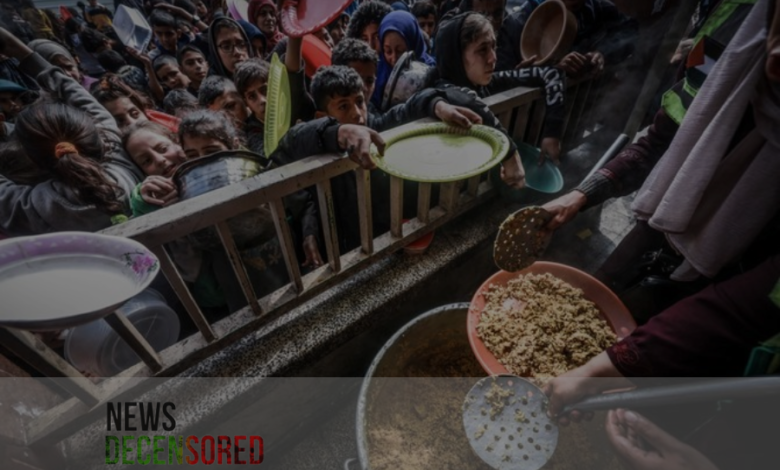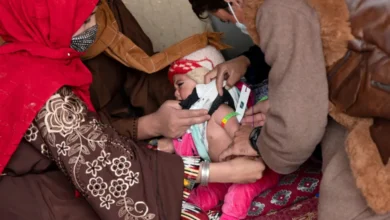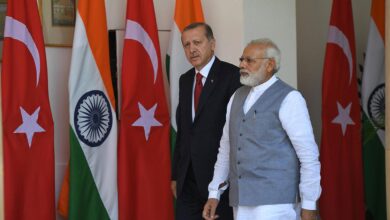1 in 5 in Gaza Face Catastrophic Food Insecurity Amid Ongoing Conflict

LONDON: There are 495,200 people in Gaza now, out of the total 1,974,982 of the population, facing the catastrophic level of acute food insecurity. This sorry state of affairs is characterised by acute famine, hunger, and weakness, as revealed in the UN’s upcoming report.
The Integrated Food Security Phase Classification (IPC)’s Special Snapshot report on Gaza, to be launched on Tuesday, also shows the deteriorating food situation. In light of the recent conflict, more than 50% of households in Gaza now have to sell or exchange clothes for food to feed themselves, says the Guardian, and famine is still a possibility.
Israeli authorities govern access to the Gaza Strip very tightly, and one has to have a military pass to be allowed in. Exacerbating the situation, cities have roads obstructed by rubble, fuel is scarce, and power and communication lines are almost insignificant.
When the war started, Israel continued to close the border to the Gaza Strip completely; a very slight change was made after pressure from the United States. It has effectively lessened the Gazan capability for food production, with the emphatic situation worsening.
According to the IPC report, food deliveries and nutritional services to northern Gaza, which escalated in March and April, averted famine to some degree and eased the situation in the southern area of the territory. However, the escalation of the conflict in recent months has resulted in a very high rate of deterioration whereby the threat of famine remains so long as fighting goes on, and access to affected populations remains denied.
The Guardian reported that over half of the households in Gaza often lack food for several days, and more than a fifth of the residents go without eating during the day and at night. The current trend of BPD is frightening and highly volatile, which may make the slight enhancements evident in April transient.
Due to the fighting, access to KSBC is severely problematic for UN agencies and aid organisations, and the Israeli restrictions of entry, the discussion with the military and the completely anarchic situation make it highly challenging to get to the desired location.
The IPC has not stated a famine situation which requires the prevalence of inadequate food to be below 20% of the households, acute malnutrition prevalence of below 30% among children, and famine-related deaths of two adults for every ten thousand people and four children for every ten thousand people while the situation in Gaza is very terrible. About 22 per cent of the population of Gaza meets criterion B of stage 5 hunger, which is classified under famine levels.
Volker Turk, the UN High Commissioner for Human Rights, has claimed that the withholding and the limitation of humanitarian supplies and goods into Gaza by Israel would amount to the war crime known as starvation. Currently, the World Food Programme and the Food and Agriculture Organisation have stated that by mid-July, more than a million people could be dead or starving.
In a joint statement, Josep Borrell, the EU’s foreign policy chief and European Commissioner for Crisis Management Janez Lenarcic, stated: “The crisis in Gaza has escalated to another level… It is almost impossible to deliver any meaningful humanitarian aid inside Gaza, let alone the destruction of the social structures of society. ”
Ahead of the IPC report’s release, Kate Phillips-Barrasso, vice president of global policy and advocacy at Mercy Corps, expressed the severity of the crisis: “Persons in the accused’s narrations are surviving in a situation worse than animalistic, boiling kales, feeding on what animals feed on and trading clothes for food to be able to survive and feed their children.
“The humanitarian conditions are worsening continuously, and the threat of famine still prevails in Gaza. The Humanitarian assistance available is pretty meagre. The international community needs to exercise unrelenting diplomacy to force a ceasefire to ensure the continuity of humanitarian assistance. The people of Gaza cannot take these adversities any longer. ”
During the war, the entire population of Gaza is suffering a great deal, and the situation requires constant attention and practical actions from the countries of the world.




